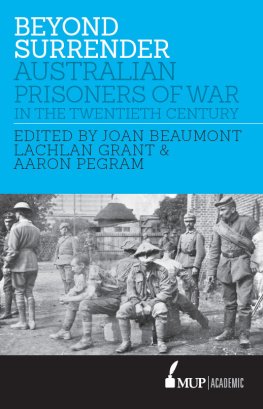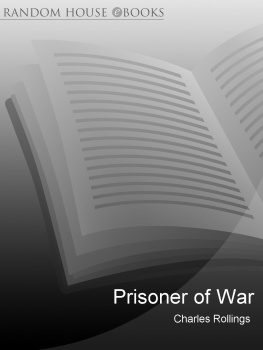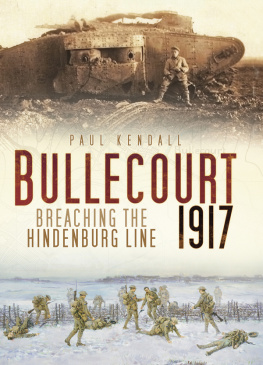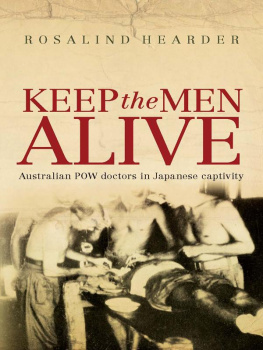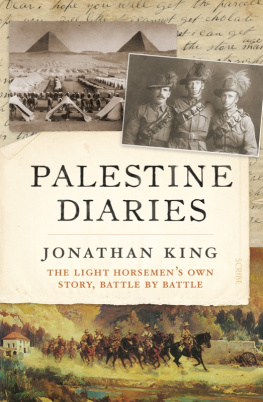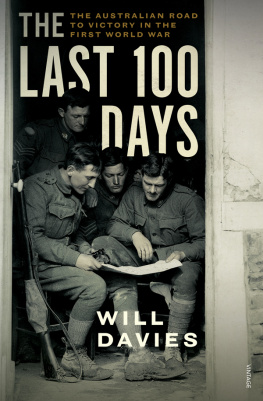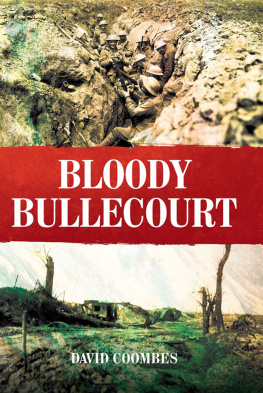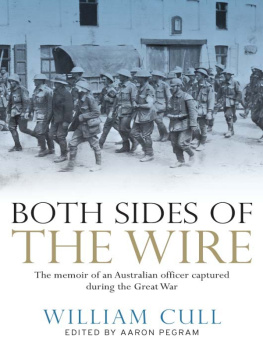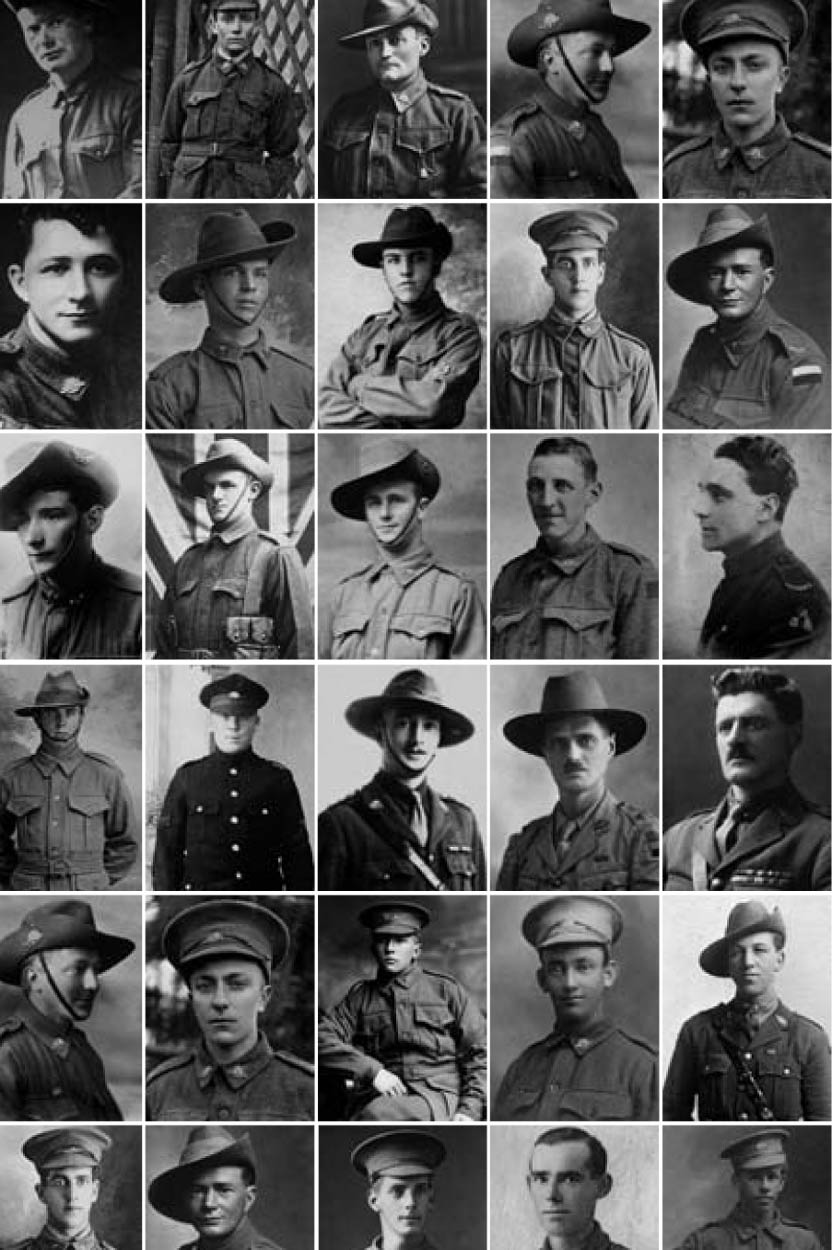
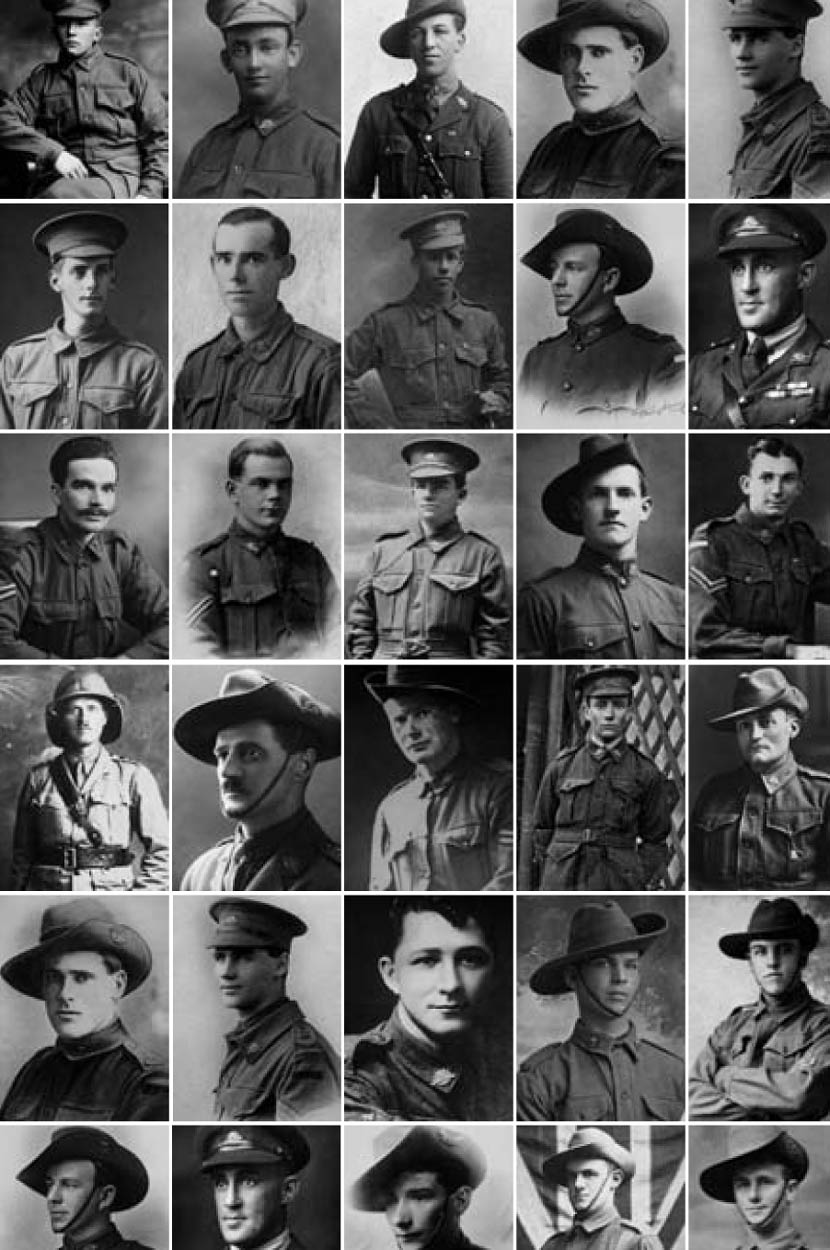
CROSSING
THE WIRE
The untold stories of Australian POWs
in battle and captivity during WWI
CROSSING
THE WIRE
The untold stories of Australian POWs
in battle and captivity during WWI

www.bigskypublishing.com.au
David Coombes
Copyright David Coombes 2011
First published 2011
Copyright remains the property of the author and apart from any fair dealing for the purposes of private study, research, criticism or review, as permitted under the Copyright Act, no part may be reproduced by any process without written permission.
All inquiries should be made to the publishers..
Big Sky Publishing Pty Ltd
PO Box 303, Newport, NSW 2106, Australia
Phone: (61 2) 9918 2168
Fax: (61 2) 9918 2396
Email: info@bigskypublishing.com.au
Web: www.bigskypublishing.com.au
Cover design and typesetting: Think Productions
National Library of Australia Cataloguing-in-Publication entry
Author: Coombes, David.
Title: Crossing the Wire : The untold stories of Australian POWs in battle and captivity during WWI / David Coombes.
ISBN: 9780987057419 (hbk.)
Notes: Includes bibliographical references and index.
Subjects: Prisoners of War--Australia.
World War, 1914-1918--Australia--Army,
World War, 1914-1918--Campaigns~France,
World War, 1914-1918--Campaigns~Belgium,
Australia--History, Military--20th century.
Dewey Number: 940.426
Table of Contents
List of Maps
Map 4 The situation at Bullecourt at about 9.30 a.m.,
11 April 1917, after the capture of portion of the
Hindenburg Line by the 4th Australian Division
To Veronika, Peta and Tally for their love and encouragement.
Acknowledgements
I am grateful for the excellent support I received from the School of History and Classics at the University of Tasmania. In particular, I would like to single out Professor Michael Bennett and Associate Professor Stefan Petrow who read the first draft of the manuscript and offered valuable advice. I am also indebted to Professor Bennett for helping to secure funding for the project from the Tasmanian government and the Commonwealth Department of Veterans Affairs. I wish to thank research assistant Elisabeth Wilson who retyped, checked and catalogued the Chalk transcripts and Associate Professor Peter Chapman for his help. My thanks extend also to Lyn Richards, Cheryl Hughes and Julie Hill from the schools administrative staff who offered valuable secretarial assistance whenever needed.
As usual, the staff at the Research Centre, Australian War Memorial, were extremely helpful during my visits there. I also wish to thank the staff at the Mitchell Library, Sydney; the Mortlock Library, Adelaide; Battye Library of WA History, Perth; and the Liddell Hart Centre for Military Archives, Kings College, London, for the help offered. Patricia Boxhall, Curator of the Pioneer Village Museum in Burnie, provided valuable assistance, particularly in relation to David Chalks wonderful collection of World War I books and memorabilia which are exhibited at the museum.
I thank Sharon Evans and Denny Neave at Big Sky Publishing for the help they provided, particularly in organising the photographs and maps. I also thank Cathy McCullagh for her painstaking editing and Ian Faulkner for drawing the maps. I express my appreciation to the Australian Army History Unit in particular to Mr Roger Lee and Dr Andrew Richardson for helping to fund the project and providing money for additional research at the Australian War Memorial, Canberra. I also thank the Tasmanian Government, through the Department of Arts, and the Commonwealth Department of Veterans Affairs for other funding.
Last, but by no means least, I would like to record my gratitude to Ian and Jenny Chalk of Wynyard, Tasmania, for entrusting me with completing the research and the task of writing this book following the unfortunate death of their nephew, David Chalk. David left a valuable collection of interviews, personal papers, photographs and unpublished manuscripts all now deposited with the School of History and Classics at the Hobart campus of the University of Tasmania. In writing this book, I have barely tapped into the collection there is still much on offer for the enthusiastic researcher or postgraduate student.
Ian and Jenny Chalk always offered me encouragement and cheerfully answered all my questions, also making me welcome in their home. I can only hope that this book serves, in some small way, to honour the memory of their nephew, David Chalk, and that of his grandfather, ex-POW Ernie Chalk.
Introduction
I am a Kriegsgefangener
I wish that I were dead
Its all through drinking sauerkraut
And eating mouldy bread.
My bed is in the corner,
I sleep upon the floor
My back is nearly broken
My ribs are very sore.
And when the war is over
And I settle down to rest,
If ever I meet a squarehead,
Ill smash his bloody chest.
This stark verse, written by an Australian prisoner of war (POW) in World War I, was circulated around the camps in Germany during the latter stages of the war. Representing probably the greatest hardship suffered by those being held captive privation the doggerel quickly came to signify the plight of Australian POWs. While figures vary, at least 4,000 Australian soldiers who fought in France and Flanders were captured by the Germans. By far the greatest number almost 1,200 were taken at the First Battle of Bullecourt on 11 April 1917.
Drawing on research and interviews conducted by the late David Chalk during the 1980s and early 1990s, Crossing the Wire describes the wartime travails of Australian soldiers through the Gallipoli campaign, the Western Front, and their internment as POWs in France and Germany. The books narrative portrays the experiences of almost three dozen veterans of the 4th Australian Infantry Brigade, their accounts supported by the letters, diaries and narratives of others in the brigade.
David Chalk became interested in the plight of Australian POWs after reading the diaries, letters and recollections of his grandfather, Ernest Chalk, who was captured at Bullecourt. Over the years this interest blossomed so much so that, at considerable personal expense, David travelled the length and breadth of Australia, documenting other 4th Brigade veterans stories of their period in captivity, interviewing them, collecting photos, images and unpublished manuscripts in fact anything of any relevance that he could find. At the same time, he amassed a large collection of memorabilia, most of it connected to the men he had interviewed. David intended to write a book documenting the experiences of these men under the title Among the Angels: the road to Bullecourt. Unfortunately, he fell ill before he could commence writing his book and passed away soon after. To me has fallen the task of completing Davids cherished work and I have attempted to follow his outline and chapter plans as closely as possible. Crossing the Wire is a tribute to David Chalks determination to relate an extraordinary story that, but for him, would have died with the men of the 4th Brigade.
As its central theme, Crossing the Wire
Next page

